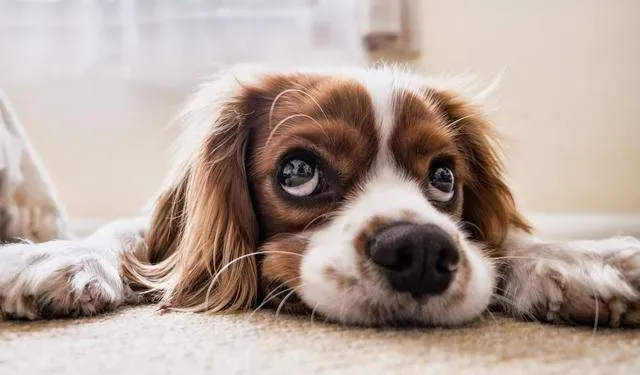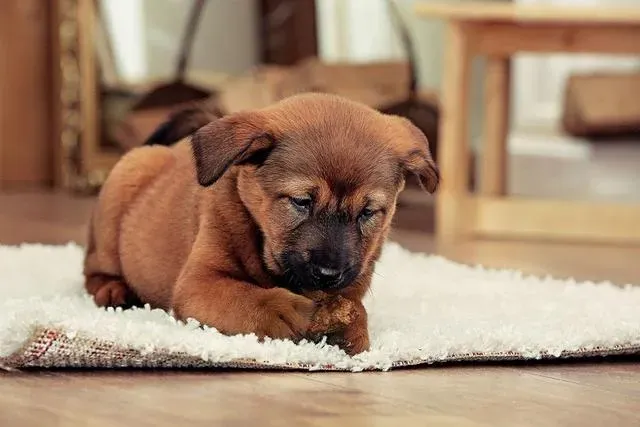Dog Problem: Puppy Soiling Crate
Common Reasons Puppies Have Crate Accidents
Crates are an excellent tool for training your puppy and giving them a safe place to relax. Dog crates can be a great way to house-train your pup, but some pups have random accidents in them. The problem you’re trying to avoid by using the crate in the first place might happen! Unless the accidents are few and far between, there is no reason to be alarmed or concerned. But should your puppy decide to make a habit of releasing their bowels in the crate, there are some common reasons for this recurring issue.
- Anxiety
Some dogs can’t stand the crate due to the small, confined space. Watch for signs of stress when you place your pet in the container. An anxious dog could pee or poop uncontrollably.

- Upset Stomach
Consider the food and treats you are giving your puppy if you notice they have an upset stomach, diarrhea, or other symptoms.
- Crate Size
It’s essential to choose the right dog crate for your pup. Refer to a size chart to ensure recommended sizing. If the crate is too large, the puppy has too much room to go potty on one end and sleep on the other. On the other hand, if the space is too small, it could cause anxiety, which could bring on bladder or stomach issues.

- Improper Potty Training
Your puppy could be soiling their crate because they don’t know any better. Before crating a dog for an extended period, you must ensure that they are housebroken and have the bathroom routine down pat! You can still use the crate during the potty training, but we recommend doing so for only a short period.
- Disrupted Routine
It’s crucial for your dog to have a routine, so make sure you feed them at the same times throughout their day and relate it directly with time spent in the crate. If your dog has just eaten, it is best that you wait at least 30 minutes before crating them to allow time for a bowel movement.
Tips to Training Against Potty Accidents in the Crate
The best way to help your dog is by being calm and patient. A stressed or upset human can make the situation worse for both of you, so stay relaxed!
- Pay Attention to Puppy Clues
If your pup is having trouble holding urine at night, it could be because the bladder control muscles haven’t developed enough. It’s common for most young puppies to be carried outside once at night to release their bladder.
- Give Proper Crate Training
Your puppy should see the crate as a quiet place of refuge and retreat. During training, give your pup a treat or toy when they are in the crate during the day. When he willingly enters, give praise and a reward. You can eventually stop giving treats as they become accustomed to their crate.

- Keep a Consistent Schedule
To help your puppy successfully use the bathroom, you should maintain a regular schedule for feeding and potty breaks. You can usually predict when your furry friend will need to go potty when you keep the same routine.
- Exercise is Essential
Walking and playing with your puppy are beneficial for many reasons. When it comes to crate training, a tired dog will sleep all night long without waking up to use the bathroom. The same goes for during the day. Staying on a routine with your walks and playtime will help your pup be less anxious or bored when in the crate.
- Don't Punish Your Puppy
When your pup has soiled the crate, do not yell or push its nose into the urine or feces. They will have no idea what is going on, and you can potentially cause more harm and regression. Instead, take your puppy out to the potty spot and allow them to try again, then clean up the mess and wash any bedding if needed.

Resources:https://www.cesarsway.com/
Previous
What is the best dog for kids
Next
Puppy Crate Training


